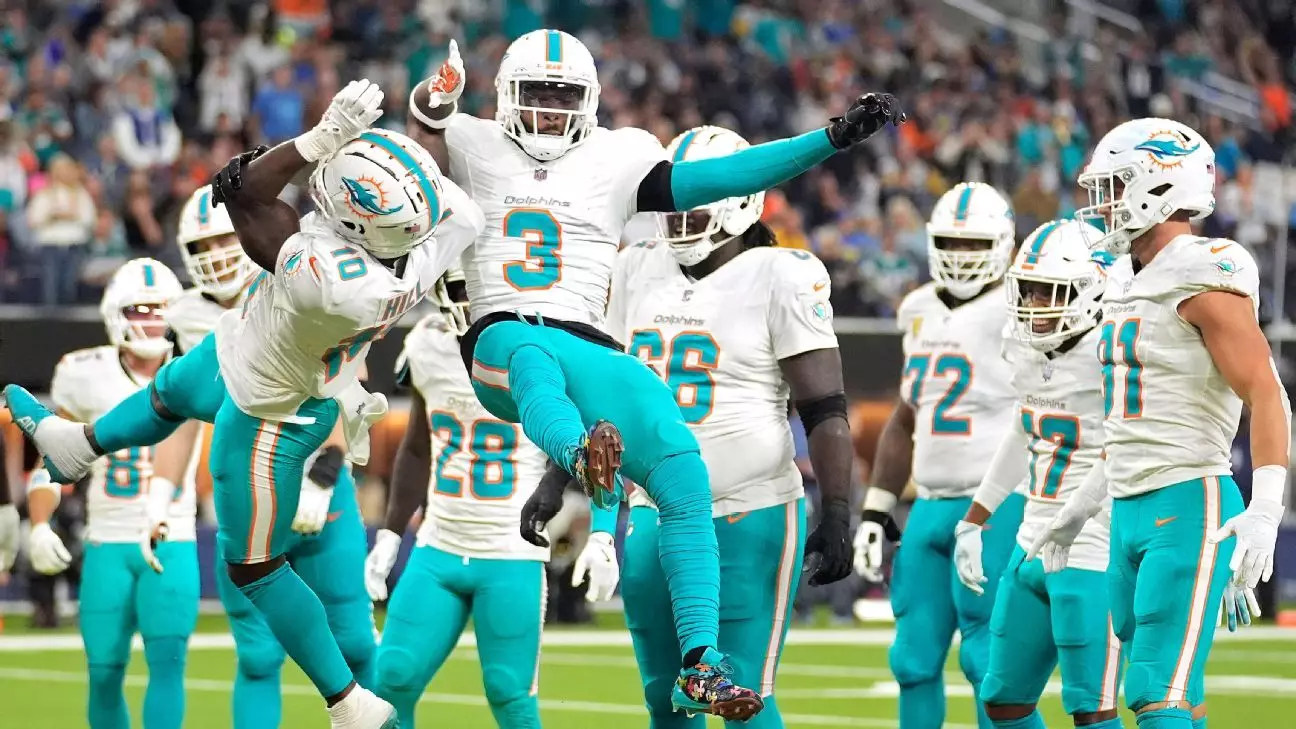The recent release of Odell Beckham Jr. by the Miami Dolphins marks a significant turning point for both the player and the franchise. Announced just four weeks before the conclusion of the regular NFL season, the decision reflects deeper issues both on a personal and team level. This mutual parting, fueled by Beckham’s recent absence from practices due to undisclosed personal matters, raises questions about the effectiveness of Miami’s front office and its decision-making process, as well as the challenges faced by the talented wide receiver.
Beckham, who joined the Dolphins with high hopes in May under a one-year, $3 million contract, faced considerable hurdles right from the start. His offseason knee surgery placed him on the physically unable to perform list, impacting the team’s expectations of his punctual contributions at the beginning of the season. Miami knew the risks involved when signing him, yet a promising partnership quickly turned bleak as Beckham’s impact dwindled throughout the season. With only nine receptions for a meager 55 yards over nine games, it became glaringly obvious that his return to form would not materialize as anticipated.
In a team that was projected to have a dynamic receiving corps with the likes of Tyreek Hill and Jaylen Waddle, Beckham was supposed to assume a crucial role. However, he found himself overshadowed by tight end Jonnu Smith, who unexpectedly emerged as the Dolphins’ third option, leaving Beckham searching for relevance in a competitive landscape. This misalignment highlights the perennial issue of squandered potential in professional sports, where talent and opportunity must align for success.
The failure of Beckham to integrate effectively into the Dolphins’ offense is emblematic of a season rife with unmet expectations. At one point, the team found itself stumbling with a dismal 2-6 record, largely due to the absence of starting quarterback Tua Tagovailoa, who suffered a concussion and missed four games. The inconsistency and injury woes have plagued Miami, complicating their attempts to position themselves for a playoff run.
As the Dolphins enter the final weeks of the regular season, they’ve managed to squeak out four victories in their last five games. Yet, with a 6-7 record, the path to the postseason remains fraught with challenges, necessitating not just internal improvements but also external assistance to bolster their playoff aspirations. The team’s complications with roster decisions and player integration serve as a cautionary tale that even franchises with promising talent can become mired in unpredictability.
In the wake of Beckham’s release, the Dolphins face the sobering realization that they must recalibrate their approach to both player acquisitions and in-game strategies. The once-promising signing has now become a symbol of lost opportunities that underline the challenges the team faces moving forward. As they continue their season, the focus must shift toward fostering a cohesive unit that can capitalize on its considerable talent, lest they continue down a path of fleeting potential and frustration. With professional sports often hinging on timing, teamwork, and individual performance, Miami must invest in building not just a talented roster but a unified team ready to tackle the exigencies of competition.

